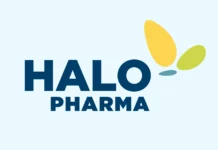Research Insight
Chugai Pharmaceutical Co Ltd announced Efficacy of Actemra Subcutaneous Injection Confirmed in Dose Interval Reduction Study in Patients with Rheumatoid Arthritis
Chugai Pharmaceutical Co Ltd announced that "Actemra® Subcutaneous Injection" (Actemra), the humanized antihuman IL-6 receptor monoclonal antibody, successfully met the primary endpoint in a dose interval reduction study (MRA231JP study) conducted in patients with rheumatoid arthritis who inadequately respond...
Research Insight
Novartis announced Major study published in NEJM confirms Ultibro Breezhaler superiority over Sere
FLAME study showed consistent superiority of Ultibro® Breezhaler® over Seretide® across exacerbation outcomes, lung function and health-related quality of life in COPD patients Ultibro Breezhaler also significantly reduced the rate and prolonged the time to the first...
Research Insight
Phase III Trial of Regorafenib in Patients with Unresectable Liver Cancer Meets Primary Endpoint of Improving Overall Survival
Bayer announced that a Phase III trial evaluating its oncology compound regorafenib (Stivarga®) for the treatment of patients with unresectable hepatocellular carcinoma (HCC) has met its primary endpoint of a statistically significant improvement in overall survival. The study, called...
Research Insight
Novartis drug Afinitor® reduces seizures patients with tuberous sclerosis complex
Novartis announced results from a Phase III study showing Afinitor®* (everolimus), when used as an adjunctive therapy, significantly reduced treatment-resistant seizures associated with tuberous sclerosis complex (TSC) compared to placebo. Patients in all treatment arms were also taking one...
Research Insight
The use of Surgical Patch TachoSil (human thrombin/human fibrogen) in Neurological Surgerye is approved by European Commission.
Takeda Pharmaceutical Company Limited announced that the European Commission has granted an expanded indication for surgical patch TachoSil (human thrombin/human fibrogen) for use in adults for supportive sealing of the dura mater to prevent postoperative cerebrospinal leakage following neurological...
Research Insight
Bristol-Myers Squibb’s Opdivo Receives Breakthrough Therapy Designation from US FDA for Previously Treated Recurrent or Metastatic Squamous Cell Carcinoma of the Head and Neck
Designation based on results of Phase 3 study, CheckMate -141, in which Opdivo met its primary endpoint of overall survival, versus three standard of care options in this patient population. Designation signals the urgent need for new treatment approaches...
Research Insight
AbbVie, CytomX to co-develop for Probody Drug Conjugates
AbbVie and CytomX Therapeutics, Inc announced that they have entered into a collaboration to co-develop and co-commercialize Probody™ Drug Conjugates against CD71, also known as transferrin receptor 1 (TfR1). CD71 is highly expressed in a number of solid...
Subscribe
- Never miss a story with notifications
- Gain full access to our premium content
- Browse free from any location or device.
Must read

















